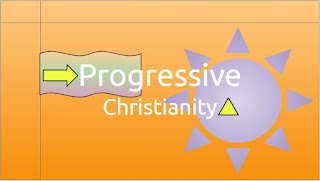"Are you certain?" If you haven't asked this question, chances are someone has asked it to you. Why are people concerned about certainty? It's because people are truth seekers. The highest rulers and the lowest citizens have asked, "What is truth?" (John 18:37-38). Many people, though, claim they have found the truth, even Christians. When someone tells others about the truth they have found, do they have to be certain? How certain does someone, even a Christian, have to be?
One group of Christians say, "People need to always be certain and never doubt." This belief is taught by those in the "Word of faith" movement. Joel Osteen, senior pastor of Lakewood Church and a weekly televised minister, is a "Word of faith" teacher who says people should say positive words and be certain they will come true. Osteen taught, "Don't use your words to describe the situation - use your words to change the situation," and even if "it may not happen overnight, you have to keep speaking victory, keep calling yourself healthy, keep declaring your children almighty in the land, keep declaring your dreams are coming to pass." Bill Johnson, senior leader of Bethel Church, also teaches unwavering certainty about God's will to heal. Johnson once wrote, "How can God choose not to heal someone when He already purchased their healing?...When He bore stripes in His body He made a payment for our miracle. He already decided to heal." Two more "Word of faith" teachers who want people to never doubt are Kenneth Copeland, founder of Eagle Mountain International Church whose messages are broadcast worldwide, and Benny Hinn, a faith healer whose ministry is broadcast worldwide. Copeland wrote that people need to, "Make a solid decision to trust in and act on the Word of God. Settle it forever. Resolve never to entertain doubts again." Hinn once wrote, "Never doubt the leading of the Spirit. If your inner man is troubled, don't move. Listen to His voice as He speaks to your very soul." Copeland and Hinn believe they receive personal revelation from God that cannot be found in the Bible, so when they refer to God speaking they are often talking about God giving direct messages outside of the Bible. All of these teachers claim people should be undoubtedly certain of what they teach.
These "Word of faith" teachers, though, are speaking beliefs that are not certain. Osteen's teachings contradict what the Bible says about the weakness of one's words, for "you who say, 'Today or tomorrow we will go to this or that city, spend a year there, carry on business and make money.' Why, you do not even know what will happen tomorrow. What is your life?" (James 4:13-16). Even the apostle Paul could not use positive words to speak away the "thorn" in his side (2 Corinthians 12:7-9). Johnson's teachings distort what the apostle Peter tells us "by His wounds we are healed" actually means (Isaiah 53:5). That verse is about how "you have returned to the Shepherd and Overseer of your souls," so Jesus heals us from our sins to bring us back to Him (1 Peter 2:24-25). On top of this it was not always Jesus' will to heal everyone (Mark 1:34-38). Copeland and Hinn teach that someone should not doubt God's personal revelations to them, and so they deny that believers should test all prophecies and only "hold on to what is good," (1 Thessalonians 5:21). Christians should not be blindly certain of things but should instead, "test the spirits to see whether they are from God, because many false prophets have gone out into the world," (1 John 4:1).
The intensity of my belief doesn't make it so. The object of belief makes it so. Do you hear the difference? Just because I really really believe it, people have been really really wrong. Correct? Right, and that's okay. Just the intensity of faith doesn't mean a thing. It's the object of faith.
- Todd Friel
On the other end of the spectrum, many Christians say "People can never be certain of anything." This belief is taught by those in the "Progressive Christianity" movement. A "Progressive Christian" teacher named Steven Furtick, founder and senior pastor of Elevation Church and songwriter of Elevation Worship music, once taught, "the opposite of faith is not doubt. The opposite of faith is certainty." Richard Rohr, a Roman Catholic Priest and popular author, has taught about the need for uncertainty through non-dualistic thinking. Rohr wrote that this thinking is "our ability to read reality in a way that is not judgmental...Reality is not totally one, but it is not totally two, either!" meaning anything is always something and something else (A=B and B=B, but A and B are different). One more "Progressive Christian'' who teaches about a Christian's need to resist certainty is Brandon Robertson, a gay writer, activist, minister, and religious influencer. Robterson has called himself a Christian agnostic, and said, "Christianity gives me a form, a set of stories and myths to help ground my search for meaning and truth, but I don't believe Christianity itself as a religion encapsulates the fullness of truth, because nothing can do that." Robterson also said, "Jesus is the one in whom I find the most meaning and rhythm for my life...but at the end of the day, I stand in humble reverent awe at the bigness, the mystery, the beauty and the majesty of the universe, and admitting, 'I don't know. You don't know. We can't know.'" All of these teachers agree that the only thing of which people can be certain is that nothing is certain.
This uncertainty among "Progressive Christians" is certainly not Christian. Furtick's assertions oppose the Bible, for it says the opposite of faith is unbelief in God, and those who believe "do not belong to those who shrink back and are destroyed, but to those who have faith and are saved," (Hebrews 10:39). The faithful should "not throw away their confidence; it will be richly rewarded," (Hebrews 10:35). Rohr's claims about non-dualistic existence go against God's words of "woe to those who call evil good and good evil, who put darkness for light and light for darkness," (Isaiah 5:20). Spiritual things always exist dualistically, for God allies with His own servants and never the forces of darkness (Matthew 12:26-28). Robertson's beliefs that nothing can encapsulate truth, are struck down, when Jesus says, “I am the truth," (John 14:6). It is through reading the Bible that God "sanctifies us by the truth; His word is truth," (John 17:17). The idea that people should be uncertain about God contradicts the way people live their lives. Jesus says of these people, "When evening comes, you say, ‘It will be fair weather, for the sky is red,’ and in the morning, ‘Today it will be stormy, for the sky is red and overcast.’ You know how to interpret the appearance of the sky, but you cannot interpret the signs of the times." (Matthew 16:2-3).
They were saying they could not know how to interpret Jesus and His words and ways. "It's all so uncertain. Who can know? We need more signs; more explanation," but when it comes to their livelihood they trusted their powers of interpretation just fine.
- John Piper
Believers should be certain of God's truth. The Bible is written "so that you may know the certainty of the things you have been taught," (Luke 1:4) for everything in God's Word is "written that you may believe that Jesus is the Messiah, the Son of God, and that by believing you may have life in His name," (John 20:31). Christians should be certain of these things, for they are reality and reality "is found in Christ," (Colossians 2:17). So, when you, as a believer, tell people about the truth you have found, people will ask back, "Are you certain?" When they do, "be prepared to give an answer to everyone who asks you," (1 Peter 3:15). Tell others about God's truth and be certain of it, because what does truth matter if you're not certain.
Sources
- The Bible (New International Version)
- Joel Osteen: Positive Speaking
- Bill Johnson: God Always Heals
- Kenneth Copeland: Never Doubt Again
- Benny Hinn: Never Doubt the Leading
- Todd Friel: The Object of Faith
- Steven Furtick: The Opposite of Faith
- Richard Rohr: Non-Dualistic Thinking
- Brandon Robertson: I Don't Know
- John Piper: You Don't Live that Way













